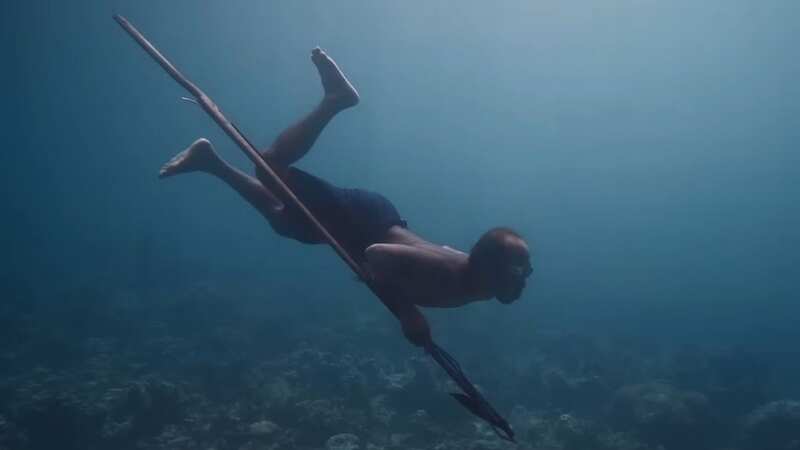Tribe that develops 'sea nomad gene' so they can swim to the bottom of the ocean

A tribe of nomadic fisher people in Indonesia have adapted to dive deeper and longer than any other humans thanks to a specially-evolved “sea nomad gene”, experts say.
The Bajau tribe have lived off the coast of Indonesia for more than 1,000 years, living in houseboats and freediving to hunt underwater with spears. Generations of this lifestyle have changed their DNA in specific ways that enable some Bajau people to hold their breath for stunning periods of time. Specifically, a mutation in what has been called the “sea nomad gene” leading to an oversized spleen has given them their underwater superpowers.
Members of this tribe can dive to up to 70m using just a set of weights and a pair of wooden goggles and it is claimed the most adept divers among them can hold their breath for as long as 13 minutes. For comparison, trained underwater special forces from the US Navy Seals can typically hold their breath for 3-4 minutes.
One reason the Bajau people are able to do these amazing underwater feats is due to their oceanic lifestyle. Melissa Ilardo from the University of Copenhagen explained: "They dive repeatedly for eight hours a day, spending about 60 per cent of their time underwater." Generations of this lifestyle have caused a mutation - called the “sea nomad gene” on one site on a gene known as PDE10A that enables the Bajau to grow extra large spleens.
The spleen plays an important role in oxygenating the blood while underwater - the organ holds a store of oxygenated red blood cells and while diving it contracts, pumping these cells into the bloodstream and allowing the body to function for longer without needing air. "There's not a lot of information out there about human spleens in terms of physiology and genetics, but we know that deep diving seals, like the Weddell seal, have disproportionately large spleens.” Dr. Ilardo told the BBC.
 Hero desperately tried to save girl, 16, killed by shark in front of friends
Hero desperately tried to save girl, 16, killed by shark in front of friends
"We believe that in the Bajau they have an adaptation that increases thyroid hormone levels and therefore increases their spleen size.” Researchers found that the Bajau they examined with ultrasound had spleens that were 50% larger on average than members of a neighbouring group called the Saluan, who traditionally lead a farming lifestyle. The Bajau people number about one million people who live across the southern Philippines, Indonesia and Malaysia.
Traditionally they only visited land occasionally, getting everything they needed from the sea. Accounts of the sea nomads date back to as early as 1521 when the Venetian explorer Antonio Pigafetta mentioned them in his writing. However modern technology is changing the way the nomads live, with air compressors replacing freediving as the best way to catch fish.
Read more similar news:
Comments:
comments powered by Disqus

































